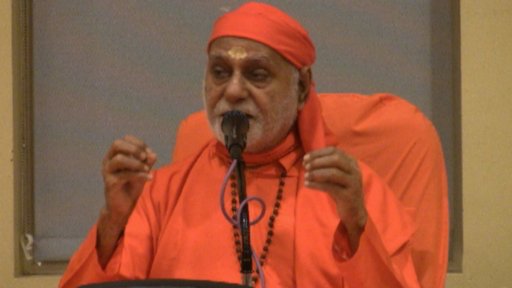Swami Bhoomananda Tirtha
A seeker once asked me whether there is something like useless karma. If you establish that there is useless karma, the world itself will become useless because karma or activity is an essential part of the world. The Bhagavad Gita (3:16), describes the whole world as a cosmic wheel of activity governed by the laws of nature, and whosoever is not able to adhere to it, only leads a meaningless life. It adds (18.48) that even if there is a measure of evil in the karma you are to perform, don’t abandon it. All undertakings in the universe are associated with a measure of evil.
Krishna says that there is no option to act or not act because all activities are designed and maintained by Nature that has three spiritual constituents — satva, rajo and tamo gunas. Satva guna represents light, happiness and wisdom, rajo guna represents all forms of activity and the causes for them such as attraction, repulsion, and jealousy. Tamo guna represents ignorance, lethargy and sleep. These three propel all activity.
All three gunas are at work in all your actions — only the proportion keeps changing. In spiritual masters, there will be larger proportion of satva guna, closely followed in smaller proportion of rajo guna. And tamas will follow. In agriculturists, rajo guna will be foremost, followed by tamo guna and then satva guna. Since we cannot escape the pressure of these three gunas, then where is the question of any activity being useless and dropping it?
In the Gita (4:17), there is a widely misinterpreted verse in which Krishna classifies action. He tells Arjuna about karmanah, akarmanah and vikarmanah — an ordained act, inaction and forbidden action; however, here too Krishna does not explain the term, vikarmanah. There cannot be anything like that if all activities are designed and perpetuated by Nature.
Play of Opposites
We normally work according to two forces — preference and prejudice, attraction and repulsion; love and hate, acceptance and rejection — and these are called dwandwas or play of opposites. The world is a collection of opposites; this includes physical things and mental ideas and concepts, intellectual assessments, man and woman, day and night, sin and virtue, today and tomorrow — all these are dwandwas. Krishna says the entire world being dwandwa-ridden, one should avoid the path of dwandwa and follow nirdwandwa, or transcend both good and bad, virtue and vice. According to the Bhagavad Gita (2:56), a man who is able to lead his intelligence on the lines of nirdwandwata, and transcend duality, will find virtue to be redundant and vices to be irrelevant. He will be able to neutralize, harmonize and oppose the effects of all karma.
There is no annihilation of opposites, only a transcending of opposites; one should not be affected by them; we should remain afloat. In the objective world, an action and its result are inseparable.
Swami Bhoomananda Tirtha is an Indian Sannyasin and social reformer







